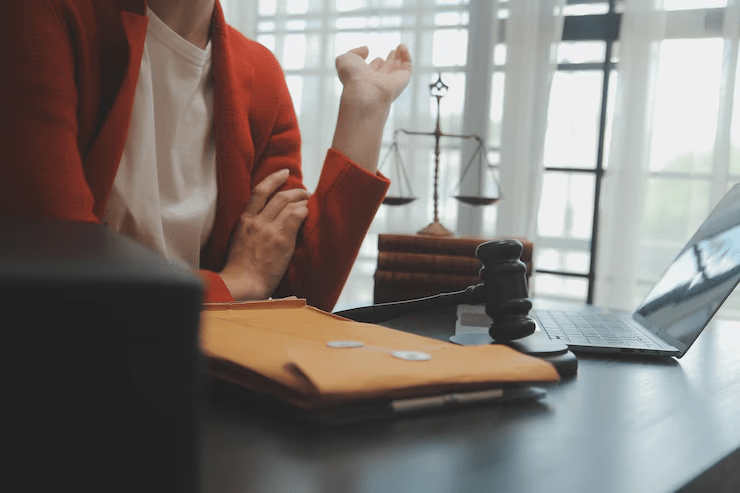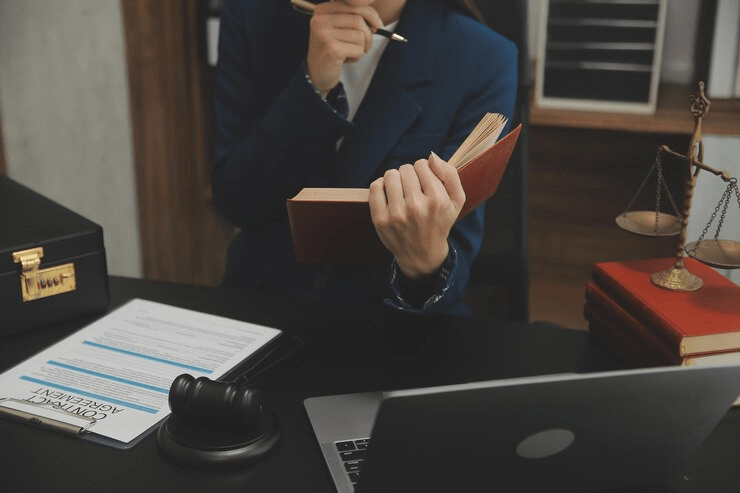Hiring a personal injury attorney can be a crucial step in obtaining the justice and compensation you are entitled to if you have been injured in an accident caused by the carelessness of another person. But not all personal injury attorneys are made equal, and your case's chances of winning frequently depend not only on your personal injury lawyer's skill and background but also on how well you get along with them. From the outset, this connection is fostered by open and honest communication.
You may assess a possible personal injury lawyer's suitability for your case during the initial appointment, which also gives you a chance to get to know them and learn how they intend to handle your legal matter. You can learn a great deal about the lawyer's strategy, experience handling cases like yours, and expectations for the result by asking the correct questions during this conversation. These inquiries can also provide insight into the administrative facets of your legal counsel or firm, including communication strategies, invoicing procedures, and case handling.
Why does this matter? Because there won't be as many surprises later on if you know more up front. Building a solid attorney-client connection early on will help ensure that you and your personal injury lawyer are on the same page and that your case will end successfully. We've put together a list of the top 10 questions you should ask your personal injury attorney at your initial consultation to assist you in this endeavor. The purpose of these questions is to provide you with a thorough understanding of what to anticipate and some tips on how to get ready for the upcoming legal process.
How Have You Handled My Sort of Case?
Personal injury law covers a broad spectrum of situations, including slip-and-fall occurrences, truck accidents, employment injuries, and medical malpractice and misconduct. The intricacies and subtleties of every sort of case are distinct, therefore the degree to which your lawyer has handled cases similar to yours might have a big impact on the result. A lawyer with experience handling the particular kind of accident or injury you have had is likely to be knowledgeable about the applicable laws, potential obstacles, and successful resolution tactics.
An attorney or insurance company's prior experience with cases comparable to yours may also provide light on their capacity to fairly evaluate the worth of your injury claim, engage in settlement talks with insurance providers, and, if required, effectively prosecute your case in court. This specific understanding is essential for anticipating and minimizing obstacles that may impede the advancement of your case, in addition to assisting you in navigating the legal system.

Anticipated Response: Case Studies and Results from the Past
A personal injury attorney should be prepared to provide specific instances of previous cases they have handled that are comparable to yours when you ask about their expertise in dealing with situations like yours. They might not be able to share every detail due to confidentiality obligations, but they should be able to give a general summary of their experience that includes:
In addition to sharing their accomplishments, a skilled attorney should be open about any challenges they've encountered and how they overcame them. This openness shows the lawyer's capacity for problem-solving and dedication to serving the interests of the law firm and their clients, as well as giving you a realistic idea of what to expect.
Additionally, while past performance does not guarantee future outcomes, it can instill confidence in your lawyer's ability to handle your case successfully. You may decide whether they are the best choice for your legal needs by learning about their relevant experience and results.
How Successful Are You?
A personal injury attorney's success percentage is a clear indicator of their ability, background, and commitment to their clients' cases. It offers a concrete indicator of how successful the serious injury lawyer has been in obtaining advantageous results, whether via settlements or court judgments. This is not simply an inquiry about their experience; it also asks the attorney to rate their accomplishments, which helps you determine how likely it is that your case will succeed. The track record of a serious injury lawyer is crucial to take into account since it indicates not only how knowledgeable they are about the law, but also how well-versed they are in navigating the complexity of personal injury law, negotiating with insurance companies, and defending their clients in court.
Anticipated Response: An Open Conversation about Success and Failure
A respectable personal injury attorney ought to be able and eager to talk candidly about their success rate. This discussion should cover the background of the cases as well as the proportion or ratio of won to lost cases. The attorney ought to be ready to present instances from previous personal injury accident cases that are comparable to yours, together with the difficulties encountered and the results obtained. Even though privacy and confidentiality policies of personal injury lawyers could restrict the details they can divulge, they should nonetheless provide a broad synopsis that illustrates their performance history.
It's critical to keep in mind that no attorney can assure victory in every instance, and a high success percentage does not imply success in your specific case. On the other hand, an honest and ethical lawyer is one who is open about their successes and failures, and who can justify the reasons behind those results. Additionally, their candor suggests that they have a reflective practice, taking lessons and advice from each case to better assist their clients going forward.
Take into account the kind of cases a lawyer has handled in addition to their success rate. A small-scale, simple claim's success might not translate to a more involved or high-stakes legal battle. To get a better idea of how a lawyer would handle your case, look for one whose past accomplishments closely match the nature and intricacy of your case.

How much time do you think my case will take?
A personal injury case's duration can vary greatly based on a number of variables, such as the case's complexity, the volume of evidence to be gathered, the extent of the responsible party' injuries, and the other party's willingness to negotiate a settlement. Since personal injury lawsuits can take longer than anticipated, it's critical that clients have a realistic knowledge of the timescale they're facing. This knowledge aids in establishing expectations and gets clients ready for the patience needed during the legal process.
Anticipated Response: An Actual Schedule accompanied by Reasons for Potential Postponements
A personal injury attorney should provide you with an estimate of how long your case should take based on their experience handling situations just like yours. But it's crucial to keep in mind that every case is different and that unanticipated difficulties can occur, or medical treatment, which could cause delays. A knowledgeable attorney will walk you through each step of a personal injury lawsuit, from the first investigation and evidence collection to the settlement talks with insurance companies and, if needed, the trial procedure. They ought to talk about other elements that can accelerate or impede the development of your case, like the degree of liability, the intricacy of your own medical records and bills for care and recuperation, and the volume of cases the court is now handling.
It may be alluring to look for a lawyer who guarantees a speedy settlement, but it's more crucial to have a lawyer who establishes reasonable expectations and is willing to work hard to protect your interests, even if it means taking extra time to put together a compelling case. Achieving a fair and just outcome for your circumstance is the goal, not just moving quickly. As your case progresses, being aware of the probable timeframe and the causes of any delays may make you feel more at ease and patient.
Does My Case Need to Be Tried?
A personal injury claims your case's outcome, the amount of compensation you receive, and the length of the legal procedure can all be impacted by your decision to settle out of court or to proceed with a trial. In personal injury lawsuits, settlements are frequent since they frequently offer a certain result, lower legal costs, and expedite the case's resolution. On the other hand, an out-of-court settlement could yield a less settlement of financial compensation than what a jury might find at trial.
A trial may provide the aggrieved party with the chance to make their case in public and may also result in a larger settlement. Trials, on the other hand, can be much more expensive, time-consuming, and unpredictable by nature. Furthermore, one should not undervalue the emotional and psychological toll that a trial takes on the plaintiff.
Anticipated Response: An Assessment of the Probability of the Case Proceeding to Trial
You should anticipate receiving a thorough assessment from your personal injury attorney depending on the particulars of your case when you ask about the likelihood of your case going to trial. The quality of your proof, the extent of your injuries, the degree of liability for car accident, and the insurance company's readiness to pay or provide a just compensation should all be taken into account during this assessment. Your attorney should outline their approach to settlement talks with other lawyers already on the other side and indicate when they think it would be best to consider or proceed with a trial. Based on their experiences with comparable cases, they should also talk about the chances of settlement versus trial, pointing out that although most personal injury cases end in settlement, there are situations where going to trial is the best course of action to get the desired result.
In order for you to jointly make an informed decision, it is imperative that your attorney thoroughly discuss the advantages and disadvantages of each situation as it relates to your particular case. A review of their resources and trial experience, as well as how ready they are to take your case to trial if needed, should be part of this discussion. Ultimately, you should weigh the possible advantages and disadvantages before deciding whether to settle or proceed to trial, consulting your attorney for guidance and counsel.

What Obstacles Do You See in My Case?
Every personal injury case has a unique combination of difficulties and roadblocks that could influence how it turns out. Setting reasonable expectations and creating a strong legal strategy require an early understanding of these possible challenges. By foreseeing difficulties, your attorney can proactively handle potential problems, resulting in a more seamless legal process. Additionally, it helps to reduce some of the ambiguity and stress that may come with legal proceedings by painting a better picture for you of what to expect.
Anticipated Response: A sincere evaluation of possible challenges and a plan to overcome them
Asking your personal injury attorney about the difficulties they see in filing your case should prepare you for a frank and detailed response. This should involve a review of the factual and legal obstacles unique to your case. For example, they may show how to talk to a personal injury lawyer about difficulties establishing fault or a causal relationship, the intricacies of your medical care and how they affect your claim, or possible defenses the other side may use.
It is also advisable for your attorney to discuss the tactical methods they intend to use to overcome these obstacles. This can entail obtaining further proof, speaking with police reports or with specialists, or, if necessary, using other dispute resolution procedures. The conversation should show the lawyer is prepared to take on any challenges head-on and should exhibit a proactive and strategic mentality.
In addition to demonstrating their comprehension of your case, a lawyer who can communicate the expected problems and their approaches to resolving them is demonstrating their commitment to fighting for your best interests. Establishing confidence and ensuring that you are informed at every stage of the legal procedure depend heavily on this transparency. Recall that an attorney who guarantees a simple and uncomplicated case without addressing any obstacles would not be giving you an accurate idea of what to anticipate.
The Clock is Ticking: When Is It Too Late to Get a Lawyer For a Car Accident St Louis?
Justice on Foot: How a Pedestrian Accident Lawyer Can Help You



